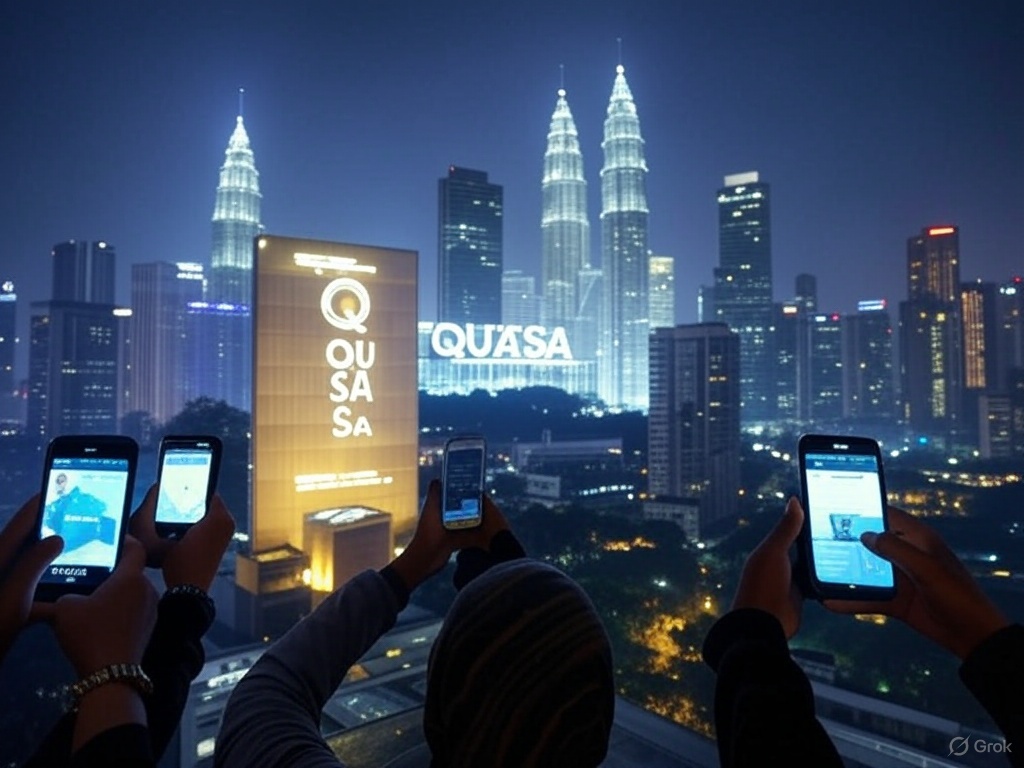Hello!
In recent years, Malaysia has emerged as a vibrant hub for remote work and freelancing, driven by a young, tech-savvy population and a growing gig economy.
 With the rise of digital nomadism and an increasing acceptance of cryptocurrency globally, Malaysian remote workers and freelancers now have an exciting opportunity to expand their earning potential through innovative platforms like Quasa Connect.
With the rise of digital nomadism and an increasing acceptance of cryptocurrency globally, Malaysian remote workers and freelancers now have an exciting opportunity to expand their earning potential through innovative platforms like Quasa Connect.
Launched as the world’s first mobile Web3 application for crypto freelancers, Quasa Connect is revolutionizing the way Malaysians engage with the global freelance market by offering seamless cryptocurrency-based earnings.
The Rise of Remote Work and Freelancing in Malaysia
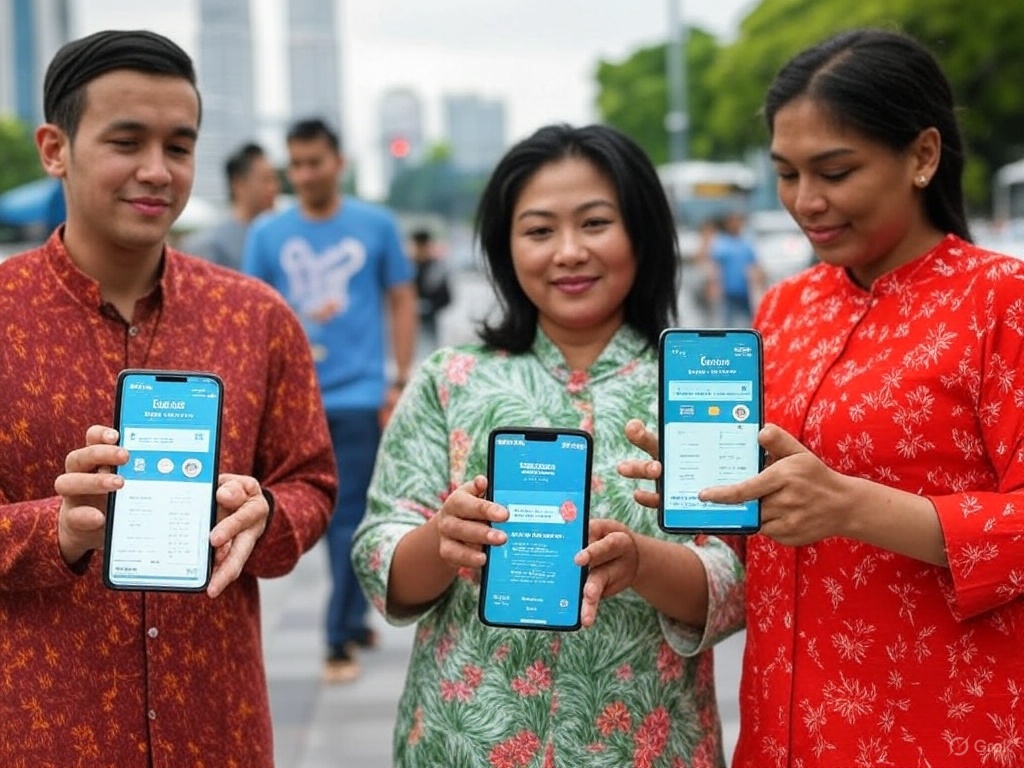 Malaysia’s freelance landscape has seen significant growth, with over 4 million freelancers already active in the country as of 2025.
Malaysia’s freelance landscape has seen significant growth, with over 4 million freelancers already active in the country as of 2025.
The nation’s robust infrastructure, including high-speed internet in urban centers like Kuala Lumpur and Penang, makes it an attractive base for remote workers.
The Malaysian government has also embraced this shift, introducing initiatives like the Digital Nomad Visa to attract international talent while supporting local freelancers.
However, traditional freelancing platforms often come with high fees, currency conversion costs, and payment delays—challenges that disproportionately affect Malaysians working with international clients.
By enabling payments in cryptocurrency, particularly its native Quasacoin (QUA), the platform provides Malaysian freelancers with a cost-effective and efficient way to earn income from clients worldwide.
How Quasa Connect Works for Malaysians
 Quasa Connect operates on a simple yet revolutionary premise: connecting freelancers directly with clients without intermediaries, using cryptocurrency for instant, low-cost settlements.
Quasa Connect operates on a simple yet revolutionary premise: connecting freelancers directly with clients without intermediaries, using cryptocurrency for instant, low-cost settlements.
For Malaysian remote workers, this means no more reliance on traditional banking systems, which often impose hefty fees for international transfers or currency conversions.
Instead, freelancers can connect their crypto wallets to the platform and receive payments in Quasacoin (QUA) or other supported cryptocurrencies, all secured by blockchain technology.
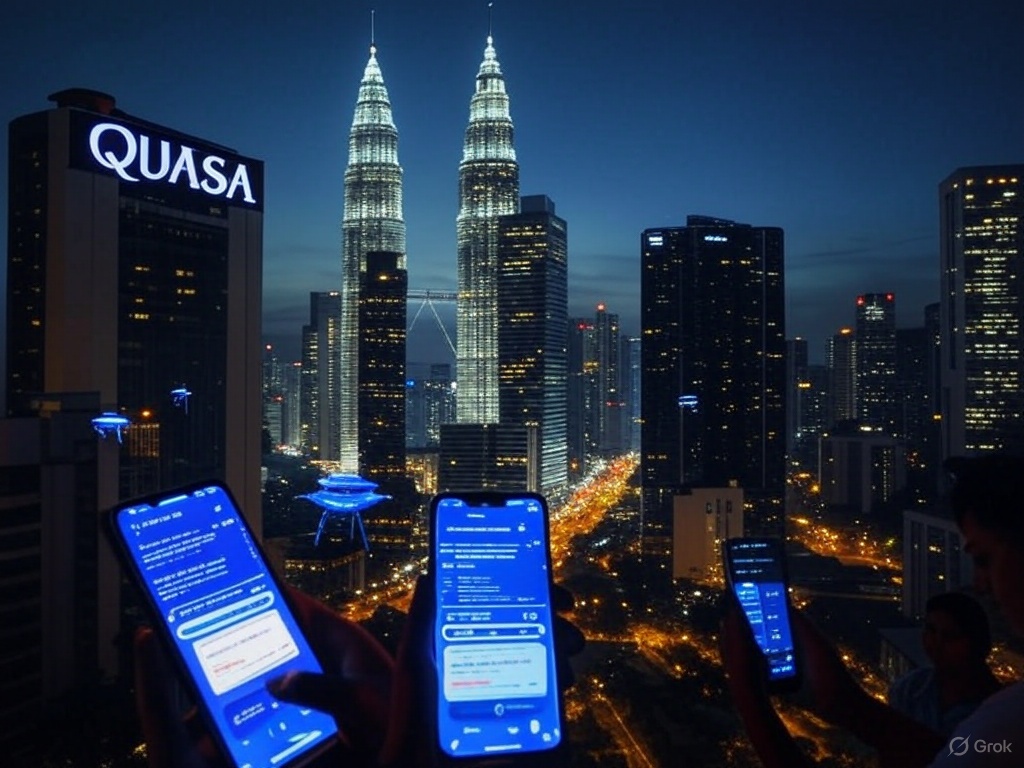 The process is straightforward. A Malaysian freelancer can sign up on Quasa Connect, create a profile showcasing their skills — whether in programming, graphic design, digital marketing, or other fields—and browse tasks posted by clients globally.
The process is straightforward. A Malaysian freelancer can sign up on Quasa Connect, create a profile showcasing their skills — whether in programming, graphic design, digital marketing, or other fields—and browse tasks posted by clients globally.
Once a task is completed, payment is released instantly via smart contracts, bypassing the delays and fees associated with conventional payment systems.
This direct, peer-to-peer model not only saves money but also empowers freelancers to retain more of their earnings.
Advantages for Malaysian Freelancers
- Reduced Costs: Traditional freelancing platforms often charge commissions as high as 20–50%, especially when currency conversion and bank fees are factored in. Quasa Connect drastically reduces these costs, claiming to offer solutions that are “10-20-50 times cheaper” than traditional methods. For Malaysians working with clients in the US, Europe, or elsewhere, this means more income stays in their pockets.
- Global Reach: Cryptocurrency transcends borders, allowing Malaysian freelancers to work with clients in regions where traditional payments might be restricted or impractical. This opens up opportunities in markets that were previously inaccessible due to financial barriers.
- Financial Flexibility: By earning in Quasacoin (QUA), freelancers gain exposure to the cryptocurrency market, an asset class gaining traction worldwide. They can choose to hold QUA as an investment, trade it on exchanges, or convert it to other currencies as needed — all without relying on banks.
- Speed and Security: Blockchain-based payments are fast and secure. Malaysian freelancers no longer need to wait days or weeks for funds to clear; payments are processed instantly upon task completion, with smart contracts ensuring trust and transparency.
Why Cryptocurrency Matters in Malaysia
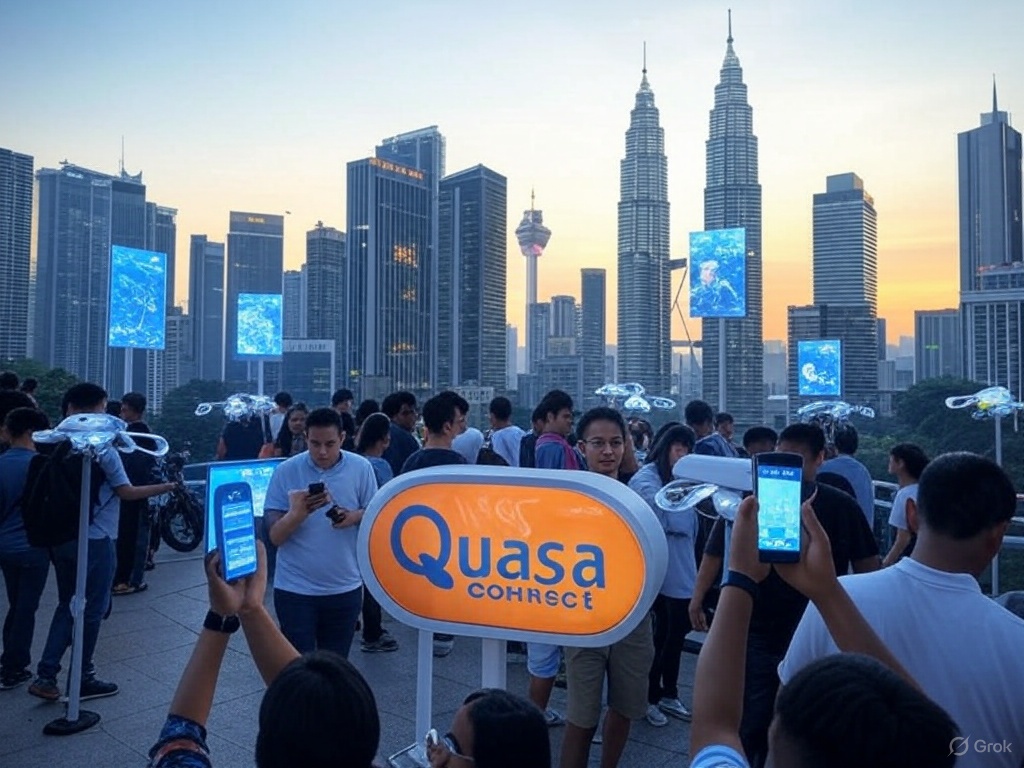 Malaysia has shown a progressive stance toward cryptocurrency. The country legally recognizes it as a security and commodity, and there’s no capital gains tax on crypto earnings for non-active traders—meaning freelancers paid in crypto can benefit from potential appreciation without additional tax burdens.
Malaysia has shown a progressive stance toward cryptocurrency. The country legally recognizes it as a security and commodity, and there’s no capital gains tax on crypto earnings for non-active traders—meaning freelancers paid in crypto can benefit from potential appreciation without additional tax burdens.
Moreover, the volatility of the Malaysian Ringgit and the challenges of accessing foreign currencies for international work have long been pain points for local freelancers.
Cryptocurrency offers a stable alternative, especially with stablecoins or governance tokens like QUA, which are designed for practical use within ecosystems like Quasa Connect.
Challenges and Considerations
 While the opportunities are vast, Malaysian freelancers venturing into Quasa Connect should be mindful of a few challenges.
While the opportunities are vast, Malaysian freelancers venturing into Quasa Connect should be mindful of a few challenges.
Cryptocurrency adoption requires a basic understanding of digital wallets and blockchain technology, which may pose a learning curve for some.
Additionally, the value of Quasacoin (QUA) is tied to the platform’s success and broader market trends, introducing an element of financial risk.
However, Quasa Connect mitigates this by offering a sandbox game (DayQ) to help new users get started and by fostering a growing community of over 200,000 monthly visitors and social media subscribers.
A New Era for Malaysian Freelancers
By leveraging cryptocurrency, the platform not only enhances earning potential but also democratizes access to global opportunities.
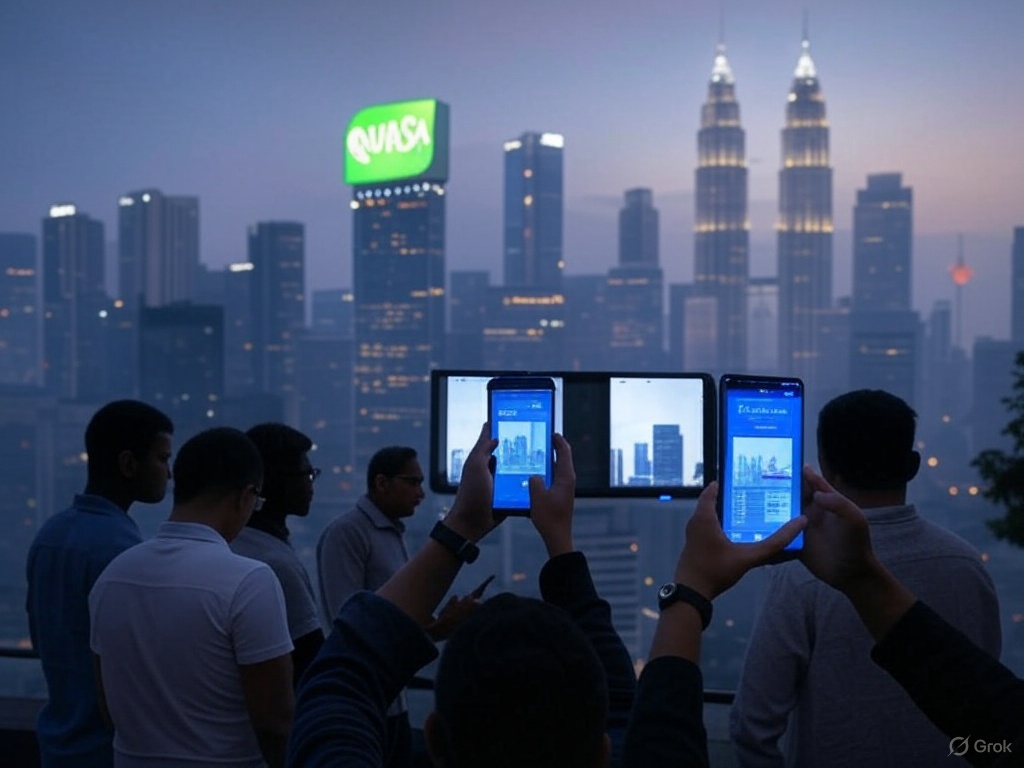 For a Malaysian graphic designer in Johor Bahru, a programmer in Cyberjaya, or a writer in Kuching, Quasa Connect offers a gateway to financial independence and flexibility — free from the constraints of traditional freelancing models.
For a Malaysian graphic designer in Johor Bahru, a programmer in Cyberjaya, or a writer in Kuching, Quasa Connect offers a gateway to financial independence and flexibility — free from the constraints of traditional freelancing models.
As the gig economy continues to evolve, Malaysia’s freelancers are well-positioned to lead the charge in adopting innovative tools like Quasa Connect.
With its promise of lower costs, faster payments, and a borderless marketplace, this platform is expanding the horizons of what’s possible for the country’s remote workforce, one cryptocurrency transaction at a time.
Thank you!
Join us on social media!
See you!


